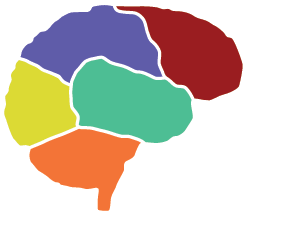
Research Study List
Open

Dr. Boxer leads the ALLFTD consortium together with Dr. Howard Rosen (UCSF) and Dr. Brad Boeve (Mayo Clinic). The ALLFTD consortium merges two previous research studies (ARTFL: Advancing Research and Treatment for Frontotemporal Lobar Degeneration and LEFFTDS: Longitudinal Evaluation of Familial Frontotemporal Dementia Subjects) and consists of 23 clinical sites that evaluate participants. ALLFTD studies both sporadic and genetic forms of frontotemporal lobar degeneration (FTLD), including behavioral variant FTD (bvFTD), primary progressive aphasia (PPA; both semantic and agrammatic variants), corticobasal syndrome (CBS/CBD), and progressive supranuclear palsy (PSP); genetic forms of FTLD may be due to mutations in several different genes, including C9orf72, MAPT, and GRN. Additionally, ALLFTD enrolls healthy participants who have a strong family history of FTLD syndromes, with or without a known genetic basis. More information is available at allftd.org.

Dr. Boxer leads this study together with Drs. Desiree Byrd (CUNY Queen’s College), Gil Rabinovici (UCSF), and Monica Rivera-Mindt (Fordham/Mt. Sinai) at a total of 11 sites across the US. BEYONDD is the first dedicated study of early onset dementia (EOD) in Black, Latinx, and other diverse populations and evaluates the efficacy of low-cost methods like blood tests and online assessments in identifying and diagnosing EOD. This study aims to reduce participant burden, learn more about what EOD looks like in diverse populations, and also enhance community-based research partnerships. Initial enrollment occurs through the BEYONDD study page at beyonddproject.org/#join-our-study.

The FTD Prevention Initiative (FPI) is an international effort to harmonize research in familial frontotemporal dementia (FTD) across the globe, led by Dr. Adam Boxer in collaboration with Professor Jonathon Rohrer at UCL in the UK. FPI brings together research efforts in Europe/UK (GENFI), North America (ALLFTD), Latin America (ReDLat), Asia (SouthEast Asia FTD Consortium; LEAF-FTD) and Oceania (DINAD, FTDGenZ).
FPI is focused on improving trial design for preventative therapeutic trials through analyses of large-scale data from member cohorts. Ongoing projects include creation of a shared database for genetic FTD data, standardization of a minimal shareable dataset for data collection, modelling disease progression, comparing digital biomarker tools, and others.
Closed

Dr. Boxer leads this initiative that involves eight sites across North America. 4RTNI evaluates participants with primary tauopathies, including PSP, CBS, and variant tauopathy syndromes. Additionally, 4RTNI enrolls healthy individuals. The study will provide information about the relative value of novel imaging techniques for diagnosis, as well as the value of imaging techniques versus testing of blood and cerebrospinal fluid (CSF) ‟biomarkers.”

Dr. Boxer is the Principal investigator for the Advancing Research and Treatment for Frontotemporal Lobar Degeneration (ARTFL) Research Consortium, an NIH-funded Rare Disease Network Clinical Research Network consisting of 18 sites that evaluate participants. ARTFL studies both sporadic and genetic forms of frontotemporal lobar degeneration (FTLD), including behavioral variant FTD (bvFTD), primary progressive aphasia (PPA; both semantic and agrammatic variants), corticobasal syndrome (CBS/CBD), and progressive supranuclear palsy (PSP). Additionally, ARTFL enrolls healthy participants who have a strong family history of FTLD syndromes, with or without a known genetic basis. More information is available on the Rare Disease Network website.

Approximately 30-40% of all frontotemporal dementia (FTD) cases are due to genetic causes. LEFFTDS studies familial FTD caused by genetic variation in any of the three most common genes associated with frontotemporal dementia: microtubule associated protein tau (MAPT), granulin (GRN), and the chromosome 9 open reading frame 72 (C9orf72). LEFFTDS co-enrolls eligible participants from ARTFL; both studies share a common infrastructure and assessments.